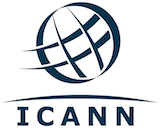ICANN: Revised ICANN Procedure for Handling WHOIS Conflicts with Privacy Law – Process and Next Steps
The Internet Corporation for Assigned Names and Numbers (ICANN) is seeking public comment on the effectiveness of the updated ICANN Procedure for Handling WHOIS Conflicts with Privacy Law (WHOIS Procedure), which was recently revised to incorporate an ‘alterative trigger’ in addition to the existing trigger to invoke the procedure.
More specifically, the community is invited to comment on an assessment of the practicality and feasibility of the additional trigger, in comparison to the existing trigger to invoke the WHOIS Procedure, as well as other triggers previously discussed by the community. The assessment was conducted by ICANN staff and is based on community discussions and input received during the previous review of the procedure, and also draws upon ICANN’s experience administering other processes where a contracted party is seeking ICANN’s approval for new services, or waiving certain contractual requirements.
The existing trigger in the original WHOIS rocedure allows a registry operator or ICANN-accredited registrar to invoke the procedure if they are in receipt of a notification of an action that its compliance with WHOIS bligations are prevented by local data protection laws. With the additional trigger, a registry operator or ICANN-accredited registrar may now also invoke the procedure by providing ICANN a written statement from the applicable government agency responsible for enforcing its data privacy laws indicating that a WHOIS bligation in an ICANN cntract conflicts with such applicable national law.
The community is encouraged to comment on the utility of the triggers in the updated WHOIS procedure or make suggestions on how to move forward with the review.
Feedback received in response to the call for comments will be summarised and transmitted to the Generic Names Supporting Organization (GNSO) Council. It will inform the next period review of the WHOIS Procedure, planned to commence not later than 1 October 2017.
To contribute to this consultation, visit the dedicated webpage.
|full_html

